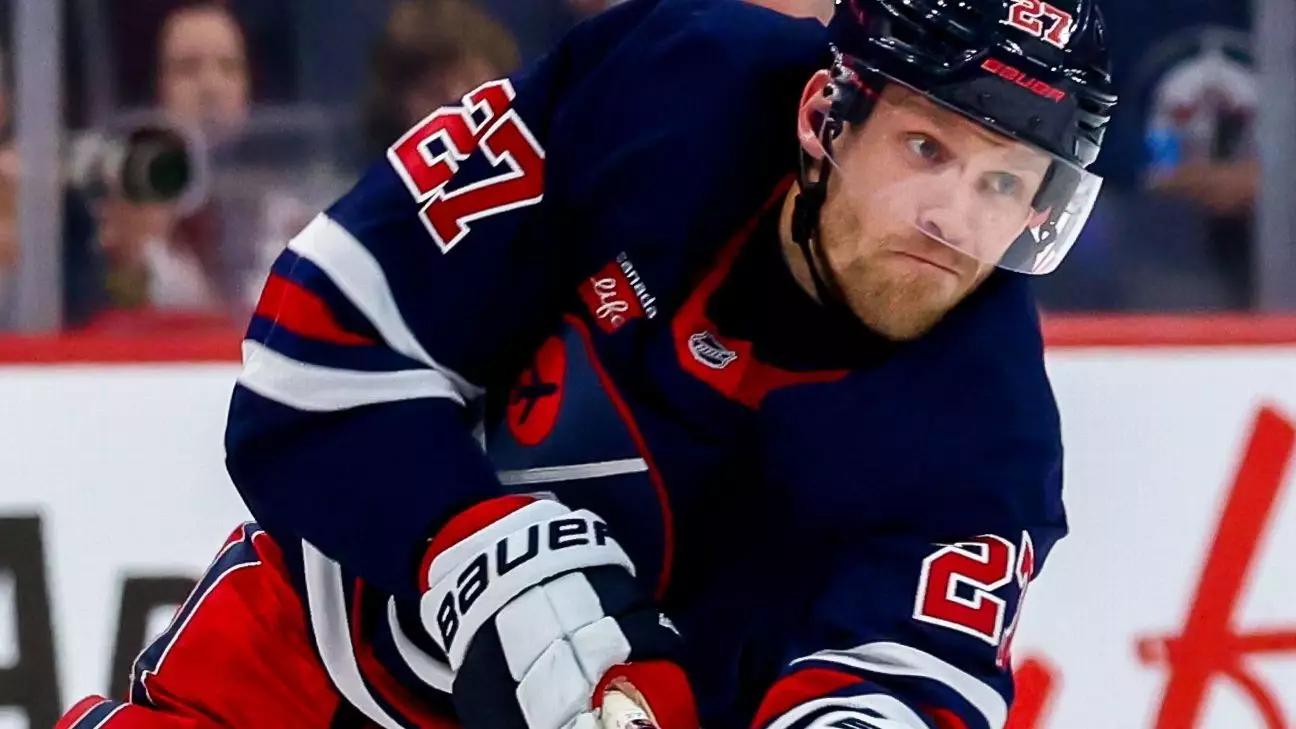The Carolina Hurricanes have demonstrated a clear shift in their strategy by securing forward Nik Ehlers to a significant six-year, $51 million contract. This move isn’t merely about acquiring a talented player; it’s a statement of intent. Ehlers, a dynamic winger known for his exceptional skating and playmaking ability, embodies the type of offensive prowess the Hurricanes have long sought but struggled to fully harness in recent seasons. His arrival signifies the team’s commitment to a more aggressive, high-paced offensive philosophy, emphasizing speed and skill over physicality. It’s a calculated risk that reflects confidence in Ehlers’ capacity to be a game-changer at both even strength and special teams situations.
What makes this signing particularly compelling is the timing. Ehlers stands out as the last top-tier unrestricted free agent, and Carolina managed to land him amidst a fiercely contested market. The franchise’s willingness to pay premium dollars indicates both the urgency and ambition of the organization. They recognize that talent like Ehlers doesn’t come cheaply, but they believe his impact can justify the hefty price tag over the long term, making this a strategic cornerstone for their future offensive blueprint.
A Calculated Response to Past Limitations
For years, the Hurricanes have flirted with the idea of acquiring a prolific goal scorer to elevate their offensive ceiling. Their previous efforts, such as the trade for Jake Guentzel and the pursuits of Mikko Rantanen and Mitch Marner, underscore a persistent desire to add high-end talent up front. Unfortunately, these endeavors were hamstrung by organizational circumstances, including player preferences and contractual constraints. The failure to land these marquee players was a blow, yet it also served as a catalyst, emphasizing the need for internal solutions and selective signings.
Ehlers’ arrival feels like the culmination of a long-term plan. His profile as a 20-goal scorer and a highly mobile winger ready to contribute across different game situations makes him an ideal fit. It’s noteworthy that the Hurricanes, despite their offensive versatility, struggled during the postseason, especially against Florida, where their scoring dried up in the later rounds. This signing directly addresses those shortcomings, injecting a shot of creativity and speed that the team arguably lacked—a move driven more by necessity than coincidence.
Redefining the Hurricanes’ Identity with a New Assimilation
The addition of Ehlers doesn’t just bolster the roster—it redefines the team’s identity. For years, Carolina has been noted for its disciplined, well-structured style of play, often relying on defensive reliability and smart puck management. Now, with Ehlers on board, the Hurricanes are signaling a desire to embrace more flair and offensive daring. This is a team eager to compete with the league’s true offensive firepower and willing to adapt their approach to do so.
His proven production, especially his career-best performance last season, suggests he’s entering his prime—a realistic hope that Ehlers can sustain and even elevate his offensive output. Pairing him with established stars like Sebastian Aho and Jesperi Kotkaniemi offers a tantalizing glimpse into what could be a potent top-six line. The Hurricanes’ management appears intent on fostering an environment where speed and skill are prioritized, aiming to outpace opponents instead of merely outmuscling them.
A Bold Step Forward or a Risk Worth Taking?
While the signing signals optimism, it also brings inherent risks. Ehlers’ recent injury history and physical style could pose vulnerabilities over the lengthy contract. Moreover, the Hurricanes’ decision to pay a premium for offensive talent underscores a willingness to gamble on maximizing short- and medium-term success, potentially at the expense of future flexibility.
Yet, this move resonates with a broader philosophy: that success in today’s NHL demands more than just solid defense—it requires explosive scoring ability that can change the course of games instantly. In making this investment, Carolina not only adds a skilled player but also sends a message that they are no longer content with being a playoff contender; they aspire to be perennial Stanley Cup contenders. This is how organizations evolve—by making daring decisions that, if successful, elevate them into a new echelon of competitiveness.
Ultimately, the Hurricanes’ acquisition of Ehlers is a testament to their boldness and strategic ambition. It reflects an organizational philosophy that values offensive innovation and recognizes that staying stagnant in a league saturated with offensive juggernauts will only diminish their chances of reaching the ultimate prize. With Ehlers now steering their attack, Carolina fans can expect a more thrilling, more unpredictable Hurricanes team—one that dares to dream big and is willing to pay the price to make those dreams a reality.


Leave a Reply